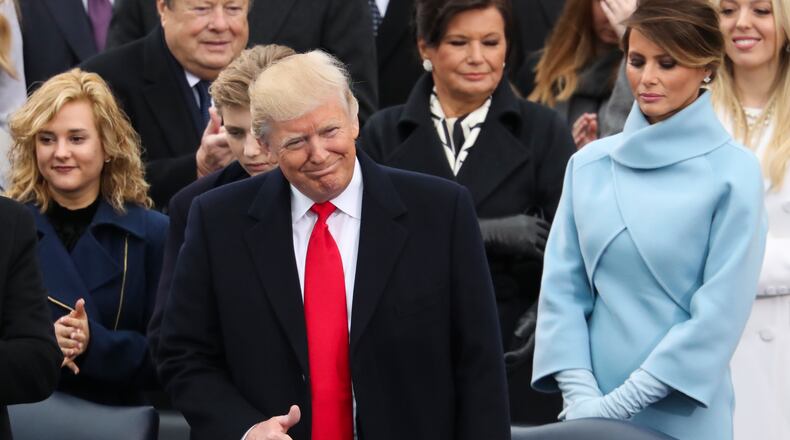President Donald Trump said Thursday his White House would "totally destroy" a law that threatens to deny churches their tax-exempt status if they engage in political activity, and hinted at an executive order on "religious liberty" that critics said would discriminate against gays and lesbians.
At a gathering of religious leaders, Trump said his administration would demand that Congress to reverse the Johnson Amendment, a 1954 law that bans churches and some other tax-exempt organizations from endorsing or opposing political candidates.
He made no mention of an executive order that's circulating that would give new legal protections for people and organizations who have moral objections to same-sex marriage. But he hinted his support for such a move.
"My administration will do everything in its power to protect religious liberty in this land," said Trump. "America must forever remain a tolerant society where all faiths are respected and where all of our citizens can feel safe and secure."
Georgia is all too familiar with debate over "religious liberty" proposals.
Galvanized in part by the Supreme Court ruling that legalized same-sex weddings, religious conservatives considered the proposal a top priority during last year's legislative session. House Bill 757 passed both Republican-controlled chambers within hours, with a promise to allow faith-based organizations to deny services to those who violate their "sincerely held religious belief."
Gov. Nathan Deal vetoed the measure weeks later, faced with boycott threats from big-name companies who warned it could sully the state's business-friendly image and gay rights groups that said the measure amounts to legalized discrimination.
Since that veto, he and other critics of the proposal have pointed to the uproar in North Carolina over legislation seen by critics as an attack on gay and transgender rights – and the subsequent defeat of the state's GOP governor – as a cautionary tale. He's also made clear he would scuttle similar legislation next year, even as state Sen. Josh McKoon and other supporters vow to revive the debate.
A few similar-sounding proposals have emerged this year, but several top Republican leaders have said they want Trump and a Republican-led Congress to lead the charge.
House Speaker David Ralston joined the chorus of skeptics late last year when he said he thought it would be "healthy for the Congress to have a debate, and let's see what they do."
And Lt. Gov. Casey Cagle repeatedly said during the run-up to the legislative session that he wants federal lawmakers — and not state ones — to tackle the debate that's divided the Legislature for three years. It was a shift from his outspoken support for the legislation last year.
U.S. Sen. Johnny Isakson has advocated doing just that, voicing concern about a patchwork of state-by-state policies that could conflict with one another.
About the Author



